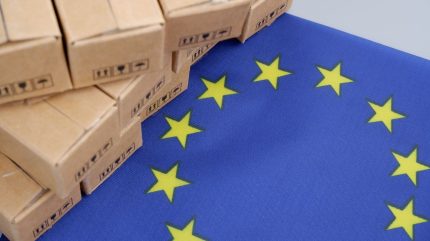
In a significant stride towards environmental sustainability, the European Parliament has passed a groundbreaking set of regulations aimed at curbing the surge in packaging waste across the continent.
With nearly 190 kilograms of packaging waste generated per person annually in Europe, the urgency of addressing this issue has never been clearer.
The new legislation not only seeks to reduce waste but also harmonises market operations and propels the circular economy forward.
Reduce, reuse, and recycle
Reduce packaging and restrict certain types
A cornerstone of the new directive is its aggressive reduction targets, which mandate a decrease in packaging waste of 5% by 2030, escalating to 15% by 2040.
These targets apply across all member states and encompass a variety of materials, with a particular focus on plastics.
The legislation sets forth clear guidelines to minimise both the weight and volume of packaging and imposes a maximum empty space ratio of 50% for grouped and transport packaging, commonly used in e-commerce.

US Tariffs are shifting - will you react or anticipate?
Don’t let policy changes catch you off guard. Stay proactive with real-time data and expert analysis.
By GlobalDataFrom January 2030, specific single-use plastic items will be banned, including those used for fresh fruits and vegetables and certain on-the-go food products like condiments and toiletries in hotels.
This ban extends to ultra-lightweight plastic carrier bags and introduces strict limits on PFAS chemicals—often dubbed “forever chemicals” due to their persistence in the environment—in food packaging.
Encourage reuse and refill options for consumers
Innovatively, the legislation also sets reuse targets for packaging, particularly for beverages and takeaway foods. By 2030, outlets will be required to facilitate consumer use of personal containers and aim to offer at least 10% of their products in reusable packaging.
This not only encourages a shift in consumer behaviour but also stimulates businesses to invest in more sustainable packaging solutions.
Recyclable packaging, better waste collection and recycling
The regulations stipulate that all packaging must meet stringent recyclability criteria by 2030, with the exception of materials like wood, cork, and ceramics.
Furthermore, ambitious recycling targets have been established, including the stipulation that 90% of single-use plastic and metal beverage containers must be collected separately by 2029, ensuring efficient recycling processes.
A healthier future and economic implications
The rapporteur, Frédérique Ries, highlighted the dual benefit of these new rules: not only do they reduce environmental impact, but they also safeguard consumer health by banning hazardous substances in food contact materials.
This legislative milestone marks the EU’s firm commitment to reducing the use of harmful materials and fostering innovation in the packaging industry.
The economic implications are profound. In 2018, the packaging sector generated a turnover of €355 billion within the EU. However, without intervention, waste is projected to rise sharply.
By implementing these measures, the EU aims not only to reduce environmental degradation but also to stimulate economic growth through innovative, sustainable practices.
A call to action
The new packaging regulations represent a bold step forward in the EU’s environmental agenda, reflecting a strong public desire for more sustainable practices and stricter regulations as voiced during the Conference on the Future of Europe.
With the Council’s formal approval pending, the anticipation builds for these measures to take effect, setting a global benchmark in packaging waste management.
This is not merely a legislative change but a call to action for industries, governments, and individuals to unite in the battle against packaging waste.
By embracing these changes, the EU hopes to foster a cleaner, greener future for all its citizens, inspiring other regions to follow suit in this vital environmental endeavour.



